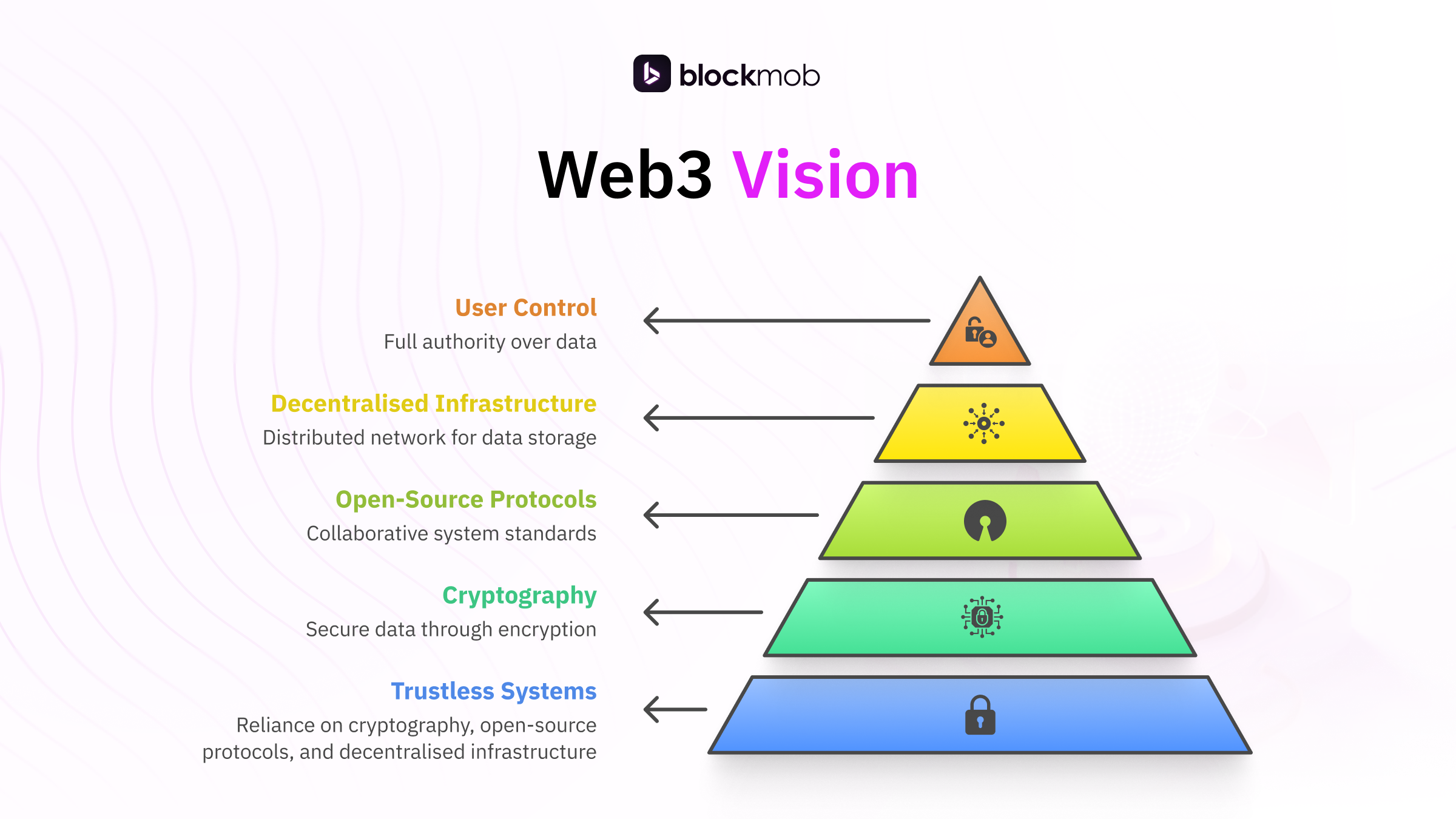Privacy and Decentralised Storage: Web3’s Future Pillars


Discover how privacy and decentralised storage are shaping the future of Web3. Learn why these pillars matter for data ownership and online freedom.
The internet we know today is powerful, but it has a major flaw: most of our personal data is stored, controlled, and monetised by centralised corporations. Every time you sign up for a service, upload a file, or browse a website, your information often ends up on servers owned by a few large companies. This system has created convenience, but it also comes with risks, such as data breaches, censorship, and a lack of ownership over our own information.
Web3 is introducing a new way forward. At its heart, Web3 is about giving power back to individuals by building systems that are open, transparent, and free from centralised control. Two of the most important pillars driving this change are privacy and decentralised storage. Together, they are shaping how the internet of the future will work.

Why Privacy Matters in Web3
Privacy is not just about hiding information; it is about control. In the current internet model, users often give up their personal data in exchange for free or low-cost services. Social media platforms, search engines, and apps track everything from your location to your preferences. That data is then monetised, often without you knowing the full extent.
Web3 changes this by introducing privacy-preserving technologies. For example, cryptographic methods like zero-knowledge proofs (ZKPs) allow you to prove that something is true without revealing the underlying data. Imagine being able to prove you are over 18 without showing your ID or verifying your account balance without revealing your exact amount. This protects your identity and gives you more freedom online.
Privacy in Web3 also addresses censorship. In centralised systems, authorities or corporations can silence voices by cutting off access. A privacy-first Web3 ensures that your interactions are secure and cannot be easily manipulated or restricted.

The Role of Decentralised Storage
If privacy protects your identity, decentralised storage protects your data. Traditional cloud storage solutions like Google Drive or Dropbox rely on central servers. If those servers go down, are hacked, or censored, you lose access.
Decentralised storage networks, on the other hand, distribute your files across thousands of nodes worldwide. Protocols like IPFS (InterPlanetary File System) or Filecoin ensure that no single party controls your data. This makes storage more resilient, secure, and censorship-resistant.
Think of it like this: instead of putting all your valuables in one locker controlled by someone else, you break them into pieces, lock them securely, and distribute them across thousands of lockers that only you can unlock. This approach makes it almost impossible for hackers or central authorities to steal or censor your information.

How Privacy and Decentralised Storage Work Together
Privacy and storage are not separate; they work hand in hand. A Web3 app that uses decentralised storage ensures your files are safe from being taken down. At the same time, privacy tools ensure that nobody can access or track your data without your permission.
For example, consider a decentralised social media platform:
- Privacy tools protect your identity and activity.
- Decentralised storage ensures your posts cannot be deleted by a single authority.
Together, they create a digital environment that is open, fair, and truly owned by the users.

Why This Matters for the Future
As more people move toward digital-first lives, the amount of personal and business data online will continue to explode. Without privacy and decentralisation, this data becomes a target for exploitation. Web3 offers a way to avoid repeating the mistakes of Web2 by creating systems where users are in full control.
The future internet will be built on trustless systems, meaning you do not have to blindly trust a corporation or middleman. Instead, you will rely on cryptography, open-source protocols, and decentralised infrastructure. Privacy and decentralised storage are not optional; they are essential pillars for making this vision possible.

Final Thoughts
The shift to Web3 is not just about new technology; it is about reshaping how the internet serves people. Privacy ensures that your personal life stays yours. Decentralised storage ensures that your data is safe, accessible, and never at the mercy of a single authority. Together, they represent the foundation of a digital world where freedom, security, and ownership belong to the users, not corporations.
Ready to explore how privacy and decentralised storage can unlock new opportunities for your business? At Blockmob Labs, we help Web3 innovators design and build future-ready products. Let’s build the internet of tomorrow together.
Contact us at blockmob.io to get started.






